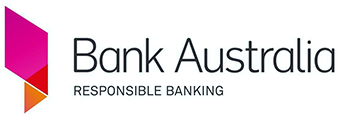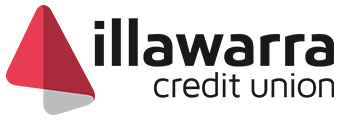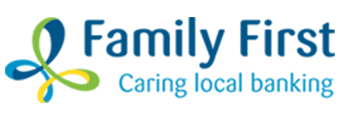One of the best ways to choose the right first home buyer loan is to find a low interest rate with suitable features you can use to save money and repay the loan faster.
Technically, there isn’t really such a thing as a ‘first home buyer loan’ - FHBs simply take out regular owner-occupier home loans - although, some lenders will offer deals and incentives specifically for first home buyers. This can often include introductory rates (aka honeymoon rates), and/or the option to borrow with a lower deposit (though you likely need to pay Lenders Mortgage Insurance).
How to find the right home loan as a first time buyer
Selecting the right home loan product all comes down to your particular financial situation. What may be right for one person, might not be for somebody else. So to help frame your decision, ask yourself the following questions:
- What is the interest rate on the available loan products? The lower the rate, the lower your weekly/fortnightly/monthly repayments. Some lenders may offer introductory rates - borrowers receive a discounted interest rate at the beginning of a home loan term for a set period of time. But keep in mind, once the honeymoon period ends, your loan can revert to substantially higher rates, which could put you under financial stress. Don’t forget to also check the comparison rate as it tells you the true cost of a loan (includes the relevant fees).
- What type of loan suits my situation? Are you after a fixed or variable interest rate? Repayments on a fixed-rate do not change during the agreed period, providing stability and making it easier to budget. Whereas with a variable loan, the interest rate can go up or down - leaving you vulnerable to rate hikes, but also allowing you to take advantage of rate cuts. Variable rates tend to offer more features and flexibility.
- How big of a deposit do I have/need? The bigger your deposit, the lower your monthly repayments, the more bargaining power you have, and the easier it can be to get approved for a home loan. Typically, lenders will require you to have a 20% deposit for a home loan, but some may let you borrow with as little as 5% - that’s where a FHB home loan comes into play. There are also government schemes you can apply for that allow you to get into the market with a smaller deposit - more on this below.
- Does the loan have beneficial features? You’ll often find variable-rate home loans offer a variety of different features that may save you both money and time on your loan e.g. offset accounts, redraw facilities, and the ability to make extra repayments (hopefully without an extra fee).
- What fees apply to the loan? Some home loan products may charge ongoing fees which can add up over time. These include annual fees, monthly service fees, late payment fees, redraw fees, and offset account fees.
What size deposit do I need as a first home buyer?
Before you can purchase your first home (and even before working out your deposit), you need to know your borrowing power.
Your income, expenses, credit score, and personal financial circumstance will determine how much you can borrow to buy your first home. It's important to do this in the early stages so you don't go looking for properties that may fall out of your comfortable budget.
Use InfoChoice’s borrowing calculator to get a clear idea of how much a bank will lend you.
From there, you can get a clearer gauge on how big of a deposit you’ll need to save.
Most lenders prefer a deposit of at least 20% of the property’s value (80% loan-to-value ratio) - this generally prevents a borrower from having to paying LMI and can also mean access to competitive interest rates. Plus, the larger your deposit, the less money you need to borrow, and the less interest you’ll pay over the long run.
But saving a 20% deposit for your first home can take years. According to PropTrack, an average-income household would need to save a fifth of their paycheque for more than five and a half years to garner a 20% deposit. For example, if you wanted to buy a house that cost $600,000, a 20% deposit would be $120,000
However, some lenders allow FHBs to apply with a smaller deposit of 10% or even 5% of the property’s value.
While you can get your foot in the property door sooner with a 95% or even 90% LVR home loan, you’ll likely attract a higher interest rate and will probably have to pay LMI (which can cost thousands of dollars). LMI is an insurance that protects the bank in the case you default on your loan.
Other costs to consider beyond the deposit
- Stamp duty
- Conveyancing
- Building and pest inspections
- Mortgage application and registration fees
- Valuation fees
Tips to get approved for your first home loan
While there’s no ‘secret sauce recipe’, there are a few tips and tricks you can follow when the time comes to apply for your first home buyer loan.
1. Watch your expenses
To improve your chances of home loan approval, rein in any unnecessary spending.
Most lenders will want to see three months' worth of living expenses - this means they’ll be keeping a close eye on your credit card and bank statements. So it might be time to cut out your regular UberEats orders or Buy-Now-Pay-Later purchases.
Up to 80% of banks use what's called the Household Expenditure Measure (HEM) developed by the Melbourne Institute, which is a standard benchmark used to determine your expenses. HEM is determined based on 600 'basic' living items' costs collected by the Australian Bureau of Statistics. Banks will typically take the higher of either your own budget or HEM to determine your borrowing power.
Consider sticking to a realistic budget six months before applying for your first home loan. All that money you would usually spend on guilty pleasures could be put straight into your deposit pot!
2. Strengthen your credit score
When a lender evaluates your application for a home loan, they rely on your credit report to gauge your overall reliability as a borrower.
Any instances of defaults, such as outstanding debts, late or missed payments, or a history of applying for loans with various providers in the past (regardless of approval status), are documented in your credit history. These factors could potentially raise a red flag, jeopardizing your chances of loan approval.
To enhance your prospects of securing a home loan, obtain a copy of your credit report from credit bureaus like illion, Experian, or Equifax. Check the report for inaccuracies or inconsistencies - should you discover any errors, address them promptly.
If need be, settle any outstanding debts, ensure you pay your bills on time, and maintain low credit card balances to increase your borrowing capacity. Lenders are inclined to favour borrowers with higher credit scores, as they are less likely to default on their home loans.
3. Don’t apply with multiple lenders at once
Don’t apply for the first home loan product you see. But also don’t apply for five at the same time.
Submitting multiple applications to several lenders will show up on your credit report - it doesn’t look good and can damage your credit score.
Do your due diligence by conducting research to find the right home loan product for your personal and financial circumstances. Hopefully that’s the one you’ll get approved for.
4. Have a steady job
A stable job will be a plus in the eyes of any lender. Most lenders like it if you’ve been with the same employer for a minimum of six months, excluding probation periods. You’ll likely need to provide three to six of your most recent payslips to prove you’re earning enough to afford your loan repayments.
So if you’re looking for a new job in the same, or entirely different industry, think again.
If you’re a casual worker, this may also work against you.
5. Get rid of any debt
Lenders assess your financial situation by analysing your debt-to-income (DTI) ratio, which measures your monthly debt obligations against your total gross monthly income.
A lower DTI ratio represents better financial health. Consider clearing your current debts (personal loans, car loans, BNPL, credit card balances) before seeking a mortgage, as this will lower your DTI ratio and enhance your likelihood of securing your first home loan.
Even HECS-HELP uni debts can factor in to a borrower’s assessment of your position. However, it is generally best to prioritise paying off other debts first.
Government schemes and incentives for first home buyers
If you need a helping hand, FHBs in Australia have access to a large range of federal and state government grants and schemes.
Eligibility criteria varies amongst each scheme along with the state/territory you live in.
Here is a list of the various FHB grants and schemes you could take advantage of.
Home Guarantee Scheme
The Home Guarantee Scheme (HGS) serves as an Australian Government initiative to support eligible home buyers purchase a new home with a deposit as low as 5%, without the need to pay LMI.
The HGS comprises of three separate schemes including:
- The First Home Guarantee (FHBG)
- The Regional First Home Buyer Guarantee (RFHBG)
- The Family Home Guarantee (FHG)
Under the HGS, 50,000 places are on offer per financial year until 30 June 2025.
Below are the participating lenders who offer the HGS:
- NAB
- Westpac
- CommBank
- Australian Military Bank
- Australian Mutual Bank
- Auswide Bank
- Bank Australia
- Bank First
- Bank of Heritage Isle
- Bank of us
- BCU
- Bendigo Bank
- Beyond Bank Australia
- Border Bank
- Community First Bank
- Credit Union SA
- Defence Bank
- Firefighters Mutual Bank
- Gateway Bank
- G&C Mutual Bank
- Great Southern Bank
- Health Professionals Bank
- Indigenous Business Australia
- Illawarra Credit Union
- IMB Bank
- MortgagePort
- Newcastle Permanent
- P&N Bank
- People’s Choice
- Police Bank
- QBANK
- Queensland Country Bank
- RAMS
- Regional Australia Bank
- Teachers Mutual Bank
- The Mutual Bank
- UniBank
- Unity Bank
- WAW Bank
First Home Owner Grants
The First Home Owner Grant (FHOG) is a one-off lump sum grant paid towards buying or building a new home. The size of the grant varies from state-to-state and so to do the rules regarding eligibility, so it pays to read your state-specific grant information carefully:
- Queensland FHOG
- New South Wales FHOG
- Victoria FHOG
- South Australia FHOG
- Western Australia FHOG
- Northern Territory FHOG
- Tasmania FHOG
First Home Super Saver Scheme
The First Home Super Saver Scheme (FHSS) allows FHBs to make extra voluntary payments into their superannuation to then later withdraw for a house deposit. First home buyers can contribute a maximum of $15,000 per financial year and up to a total of $50,000 overall per person.
Help to Buy Scheme
The Federal Government Help to Buy Scheme offers low to middle income earners a leg up to buy their first home. Eligible buyers purchasing a home would receive a government equity contribution of up to 40% of the cost of a new home, or 30% for an existing home. This essentially means you are co-buying a home with the government.
Buyers do not have to pay LMI and only need a minimum 2% deposit.
If you end up selling your home, the government is entitled to a share of any capital gains made.
Stamp duty concessions
Stamp duty is a state levy imposed on all property transactions and is one of the biggest costs you'll face when buying a home.
Work out how much stamp duty you may have to pay with InfoChoice's stamp duty calculator.
But it’s not all doom and gloom. Many of the country’s state and territories offer stamp duty concessions and exemptions for FHBs. Here’s a state-by-state rundown:
|
State |
Stamp duty concessions |
|
New South Wales |
No stamp duty on new or existing properties valued up to $800,000 and vacant land up to $350,000. Discounted stamp duty for properties between $800,000 - $1 million and vacant land between $350,000 and $450,000. |
|
Victoria |
No stamp duty on properties under $600,000 and discounted stamp duty on properties between $600,000-$750,000. |
|
Queensland |
No stamp duty on properties under $550,000 and vacant land under $400,000. |
|
Western Australia |
No stamp duty on properties with a dutiable value of up to $430,000 and land up to $300,000. Discounted stamp duty on properties between $430,000-$530,000 and vacant land between $300,000 and $400,000. |
|
South Australia |
No stamp duty on properties valued up to $650,000 and land up to $400,000. Discounted stamp duty for properties valued between $650,001-$700,000 and vacant land between $400,001-$450,000. |
|
Tasmania |
In Tasmania, you are only able to claim one of the following: FHOG or stamp duty discount - you cannot use both. FHBs can receive a 50% discount on stamp duty on established homes valued up to $600,000. |
|
ACT |
To be eligible, first homeowners in the ACT must have a household income below $170,000. This number increases up to $186,650 depending on the number of children you may have. Properties valued at less than $1 million pay no stamp duty, while any value above this can receive discounts. |
|
Northern Territory |
There are currently no stamp duty concessions for first home buyers in NT. |











